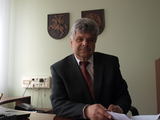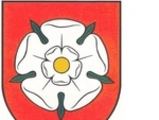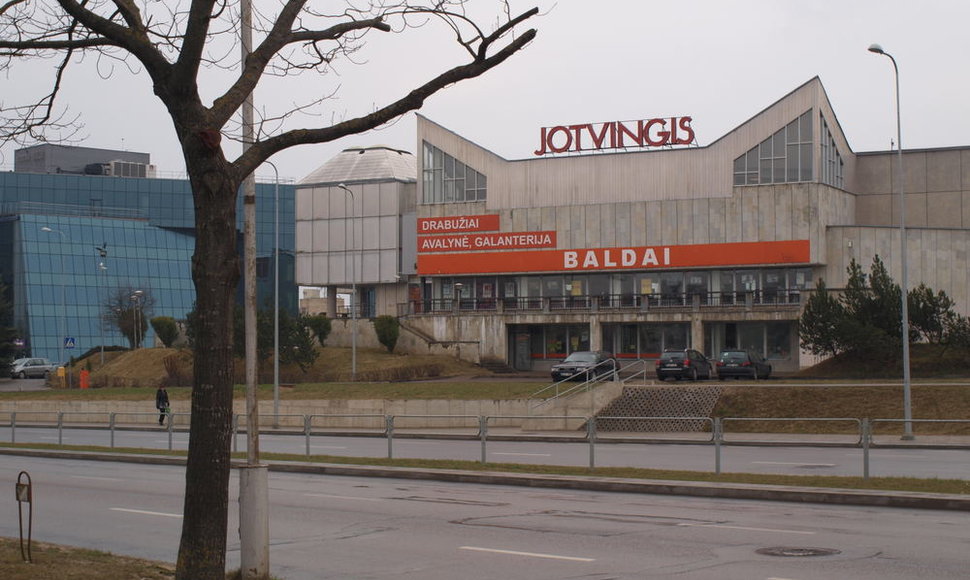One middle-aged Alytus resident tells 15min about how she worked in a now-defunct meat factory: “Women would wear pregnancy clothes, men – loose outfits and everyone would go to work on a bus seated. After work, they could only stand, with sausages wrapped around their bodies. The bus would be full, but no one would sit. Everyone knew the reason for that and made jokes about it.”
Antanas, a retired Alytus resident who used to work in a refrigerator factory, Snaigė, remembers the time with joy. “You would make one fridge by the plan [to meet centrally-planned industry targets] and two more for yourself,” he says, hanging out outside his home.
Market economy brought many changes. Many major factories in Alytus went bankrupt. Almost nothing remains of the industry that was Alytus' raison d'être during the Soviet times. The town, however, learned to live without factories that used to provide a living for almost every family.
Currently, Alytus is Lithuania's sixth town with a population of about 64 thousand.
Good things easy to forget
“I was standing in the Baltic Way on 23 August 1989, I was an active Sąjūdis member, I've been city council member from term one,” Alytus Mayor Feliksas Džiautas says. “Back then, the council published a booklet “How I imagine
 |
| Feliksas Džiautas |
Alytus in ten years.” Just to think of the things we put there! People smiling, everyone's got a good job, many culture houses, parks, alleys – in a word, a thriving city.”
According to the mayor, some predictions have come true over twenty years. “Our network of sports facilities and culture institutions is good indeed, public spaces are well-kept. And the environment has changed so much – we haven't had such supermarkets before. For instance, when they opened the “Media” [grocery] store in Alytus, relatives from Prienai came to visit it like it was a museum. Or when first foreign delegations came during initial years of the independence, we listened open-mouthed to what they said, especially about their education and social security systems. We currently provide all the services they told us about.
“It is those who used to wrap themselves in cotton and sausages that are now complaining most about how bad life is. If a man says it was better under the Soviets, it might well be true for him, but just remember the queues to buy a sausage while we could only smell an orange once a year. That is gone now. But people are prone to forget good things.”
Business revival
“For many, Alytus is still associated with industry, business, problems of the heavy industry. But on the other hand, Alytus is also home for writers like Anzelmas Matutis, Jurgis Kunčinas; last year, it was awarded as Lithuania's most sporty town,” Džiautas says. “According to a study by the Lithuanian Free Market Institute, Alytus ranked third last year in terms of social quality-of-life indicators. But a man who lives here sees more problems than good things.”
Aldona Dalia Matukienė, Alytus Region Business Association president, thinks that town's businesses are doing well – some more, some less. “Shop owners are slowly recovering after the crisis. They have grasped the rules of the game in dealing with major retail chains. There are many startups, helped by the system of “business-packages” and subsidized loans from credit unions. The town has straightened up its industrial zones, the trade village on Kepyklos street formed a cooperative and deal with certain business issues, some production enterprises are undergoing renovation and offer new products. Firms are slowly expanding or at least optimizing their operations. Construction sector is slowly recovering.”
“Alytus needs investment like lifeblood, that's why it presents itself as an industrial town. It was developed as an industrial town, but now the industry is gone, only business remains,” Alytus Vice-Mayor Dobilas Kurtinaitis says. He
 |
| Dobilas Kurtinaitis |
thinks that companies that pulled it through the late-90s Russian financial crisis and the current one can survive anything.
As an example of a successful business, the vice-mayor points out Astra factory that produces metal containers for beer, vine, nuclear power plant, and heating systems. The company exports containers to the Czech Republic, Belgium, France, Italy, Ukraine. Matukienė, too, mentions the factory.
Another company, Traidenis, produces barrels for sewage and drainage. The fridge factory Snaigė persists as well, employing a 600-strong workforce. “Let's not forget Alita,” reminds Kurtinaitis, referring to Lithuania's leading alcoholic beverages producer. “Liquor stores are loaded with vines and brandies from all around the globe. And a small ship like Alita still manages to sail those wide waters. It contracted considerably, but survived.”
According to Alytus Mayor Džiautas, the greatest boost to town's economy comes from timber plants, furniture makers, construction companies and the tailoring industry. Most production goes to export. Car makers and maintenance firms are doing well too.
The town houses about 1,050 businesses, over 3,000 citizens have business certificates. Small and medium-sized businesses make for the backbone of Alytus economy.
Leader in unemployment
However, unemployment is a big problem. Alytus boasts one of the highest unemployment levels in the country – 15.5 percent. 9,255 individuals are out of work: 5,945 in Alytus itself and 3,309 in the surrounding region. There are only 108 vacancies. Just like in the rest of Lithuania, unemployment has been on a steady rise since autumn.
The biggest blow to the town was the bankruptcy of a cotton-processing plant, Medvilnė, that employed about 6 thousand people. According to the mayor, at least one member from each family in Alytus used to work there. This is also how many people are currently unemployed. The mayor stresses that the municipality does not create new jobs, it simply works to provide favourable environment for employers to do it.
“A new-found connection between the municipality and business is very strong,” says Alytus Region Business Association president Matukienė. “Once a month, businesspeople have business breakfast with the mayor, the vice-mayor, administration director, department managers. We discuss many things that are important to us. I do not think that something similar happens in many other towns.”
Youth fleeing abroad
Another sore on Alytus' body is emigration. The year 2010 saw many people leave the town, especially youths. Most emigrated to the UK and Ireland, also to Norway and Germany. In the period between 2007 and 2011, 4,501 Alytus residents declared their departure from the country.
EU-funded projects are coming to an end, while our problems remain numerous. For instance, the Town Hall Square makes one's eyes hurt.
“I think that young people, having spent some time abroad, acquire more entrepreneurial skills and courage, since many simply do not dare setting up their own businesses. It is understandable – they fear taking risks, dealing with banks,” says Alytus mayor, trying to point out the silver lining of emigration. He admits, however: the process of emigration is left unattended to, even though this problem should be of interest to the state.
Green and promising
“Even though it seems that I've long experience, but I've never been in a situation like now, with so many challenges. EU-funded projects are coming to an end, while our problems remain numerous. For instance, the Town Hall Square makes one's eyes hurt. Our contractor, even after litigation, still won the contract, went bankrupt, and now there is a new tender, so we need to wait for a month or two before construction works can begin. Developers are so difficult to deal with now, that one silently prays: may there be someone to come, do the job, and leave. Another tricky project – cleaning up territories around the town. People keep asking: when are you cleaning this up? We are mustering resources, but there is a lot of interfering bureaucracy,” Mayor Džautas lists the rest of Alytus' problems.
There are, however, things to be joyful about. The opening of the Millennium Bridge crowns twenty-year-long construction; the town has widened the New Street, its main artery; other streets are also under repair.
Mayor Džiautas is proud of Alytus' Regional Museum, its castle hill, exhibition halls, cultural events, renovated squares, a completely new face that the town has acquired over the last two decades.
Vice-Mayor Kurtinaitis, however, is less optimistic. “There is hardly anything to boast about today, but I'd advise a guest to look at Alytus in the context of the entire region. In terms of God-given natural surroundings, we are the most beautiful region in Lithuania, perhaps only rivaled by Molėtai and Ignalina. In the future, Alytus should strive to be named a green town and present itself next to the likes of [spa towns] Druskininkai and Birštonas. I'd show a guest around the Town Park that was started back in Smetona's times [1930s]. Its history lends it certain charm and you can see many people promenading in summertime.”
How will Alytus look like in ten years? The town municipality has put together a vision for the future. It attempts to draw investment into unpaved streets that make up as many as 58 kilometres in Alytus. There are plans to renovate the Žalioji street and revive the Valley of Songs – town's former place of mass events. A pedestrian bridge over the river Nemunas is being designed, along with a recreational zone. The authorities plan to make the river suitable for tourism and navigation.
Alytus
Alytus is a town in the south of Lithuania, in the region called Dzūkija.
 |
| Alytaus savivaldybės iliustracija/Alytaus herbas |
People began settling in the area in the first few centuries AD. The first written mentioning of Alytus comes from 1377, so the town is now officially 635 years old. In 1581, Alytus was granted Magdeburg Rights by Stephen Bathory and a coat of arms – white five-leafed rose against red background.
The total population of the Alytus town municipal area is 64,118.
Construction tycoons
In recent years, Alytus was made famous by two construction tycoons, Česlovas Daugėlas and Algirdas Stasiukynas. Their companies, Kortas and Skirnuva, rivaled others not only on the local level, but in the entire country.
1993-2007 Daugėla was director of construction company Kortas. In 2007, he was elected the mayor of Alytus and was famed for being Lithuania's wealthiest mayor. His company, meanwhile, had no shortage of contracts and reported annual turnovers of over tens of millions of litas.
In 2010, Daugėla was accused of misuse of power, appropriation of municipal property, and document forgery. The businessman was arrested and removed from office.
The Special Investigation Service had suspicions about renovation works in Alytus Stadium. At the moment, Daugėla and thirteen other suspects are awaiting a court ruling. One of the suspects is Vice-Mayor Kurtinaitis.
Stasiukynas was CEO of Skirnuva construction company and one of the wealthiest businessmen in town. In 2010, Skirnuva had a turnover of almost 81 million litas. Even though business was thriving, Stasiukynas pulled a trigger at his head on 28 February 2011. Doctors were unable so save him. It has been speculated that Stasiukynas killed himself in order to salvage his company, as he was suspected of embezzling VAT. The case was dropped after his death.












